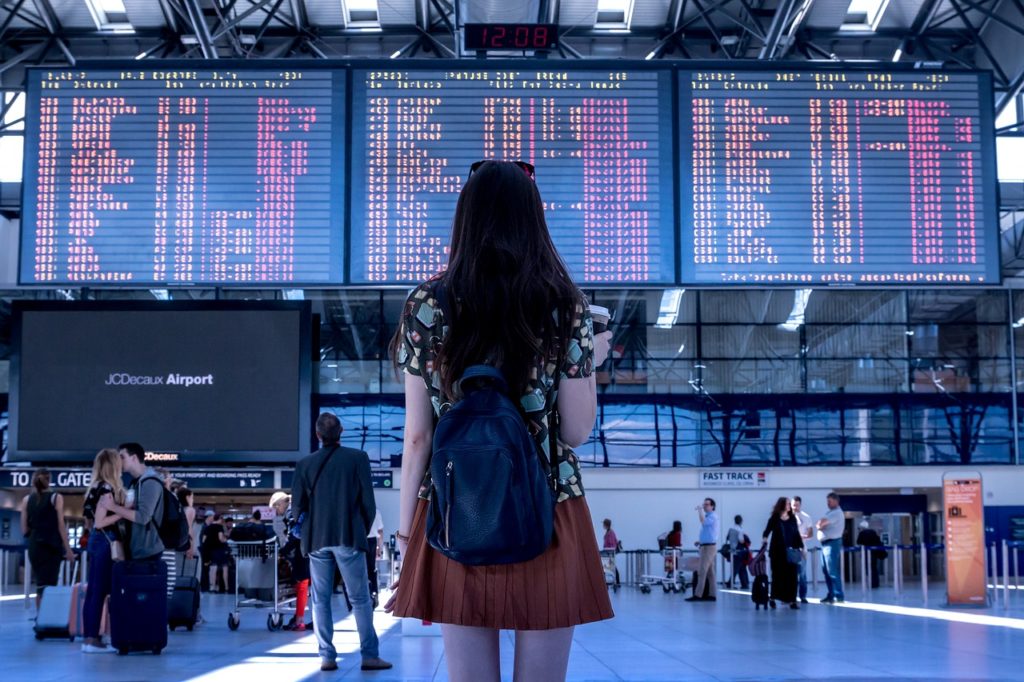Travel agencies and travelers have one more way to fly high: the blockchain applied to tourism.

Advantages of blockchain for travel agencies
1 – Efficient organization
Tour operators who are using platforms based on this technology speak about a more efficient organization and lower management costs. Like the group of Anglo-German tourism, TUI, who developed a blockchain project.
The system makes it possible to move the availability of the structures among all Group subsidiaries. All that in real time and according to the demand.
Example. A hotel chain gives its availability. The Group equally divides it between the English and German markets. Well, in the case in which the English reservations are greater, the division is recalculated. The goal: to offer more availability of beds to the English clients.
The Group has therefore acquired more flexibility.
2 – Less mistakes
With the blockchain there is always a track of the bookings as each registration is permanent and can not be changed.
No more accidental deletions or tampering!
3 – Secure payments
Using the blockchain would make payments faster and more immediate, especially international ones. Thanks to the Smart Contracts, the transaction is direct between the parties involved. No intermediaries means: cost reduction and increase in profit margin.
Not only. Cryptocurrency could support the sale of digital services without intermediaries. As for AirAsia. The Malaysian airline company provides a range of services, from seat reservations to meals, payable only with virtual currency.
4 – Safe and accessible data
Today agencies transmit customer data to airports and hotels.
The blockchain is a product aggregator (several operators together) so data are easily accessible to all actors in the tourism supply chain.
The blockchain also improves security. The Blockchain is a database distributed (there is no centralized server), constantly updated and protected by cryptography.
Not only.
The database remains transparent to everyone, so the control can be continuous and carried out by anyone who participates in the network.
5 – Disintermediation
There are already some blockchain systems that allow tourists to interact directly with travel providers without third parties, specifically, without the OLTA (online travel agency) platforms.
Example. In order to go to Aruba, tourists can get in touch with small local players to organize the trip on the Island.
Benefits for the traveler with the blockchain
1 – Identification of the traveler
Tourism is made of waits and checks. The longer the journey is, the greater the stages are before arriving at your destination. For each stage, the traveler is identified. This happens at the time of purchase of the travel package, continue at the airport and so on up to the reception or entrance of a booked museum.
The blockchain could allow you to quickly verify the identity, accelerating times and queues. Platform projects already exist which allow the traveler to authorize in real time the use of identity in case of need.
2 – Traced baggage
In the case of intercontinental journey, baggage travels from an airport to another one, through several companies.
The blockchain would allow the tracking of traveler’s baggage. In other words it guarantees more effective and easier control.
3 – Loyalty programs
The blockchain could support loyalty programs aimed at customers in the tourism sector. These could easily access information related to their loyalty points. How are these points collected?
There are already active programs that connect customers and structure / company. The tourist matures “tokens”, registered permanently. So the points do not expire and you can used them when you want.
An example of application is the Singapore Airlines program. Regular customers have a digital portfolio on which the accumulated miles become digital “currency”. They can use it, through QR code, in restaurants or shops.








